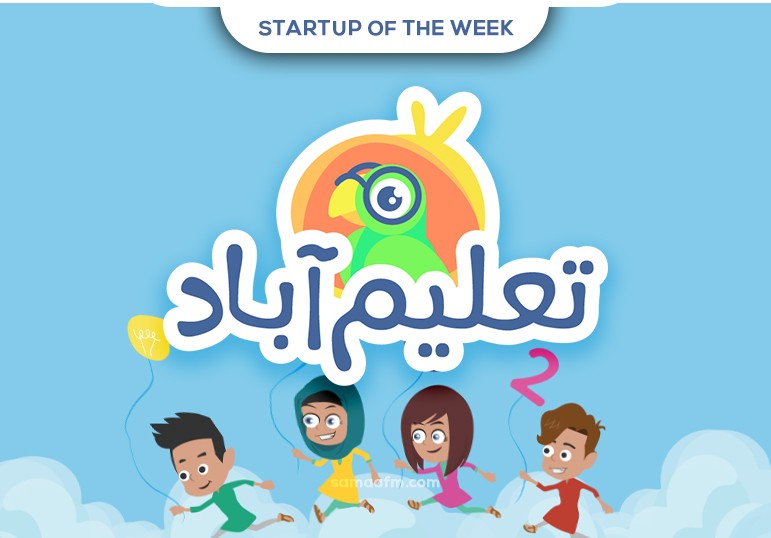
Tech Tuesday Startup of The Day: Taleemabad
Education in Pakistan
As of now, Pakistan has the world’s second-most elevated number of out-of-school students (OOSC) with an expected 22.8 million children aged 5-16 not going to class, addressing 44 percent of the all-out populace in this age gathering. In the 5-9 age group, 5 million students are not taken a basic education at schools and after elementary, the quantity of OOSC doubles, with 11.4 million youths between the ages of 10-14 not getting a formal education. Disparities based on gender, socio-economic status, and topography are huge; in Sindh, 52 percent of the least fortunate kids (58 percent young ladies) are out of school, and in Balochistan, 78 percent of girls are out of school. Almost 10.7 million boys and 8.6 million girls are selected at the essential level and this drops to 3.6 million boys and 2.8 million young girls at the lower secondary level.
Gaps in service arrangement at all schooling levels are a significant limitation to access to education. Socio-social interest side barriers, combined with monetary factors and supply-related issues, (for example, accessibility of school office and facility for kids to sit or settle), together hamper access and maintenance of certainly underestimated gatherings, specifically young adult young girls. Setting up a valid data framework and checking measures to follow maintenance and prevent drop out of students is as yet a challenge. At the system level, lacking financing, restricted authorization of strategy responsibilities and difficulties in fair implementation reaching is reaching the most distraught. An empowering increase in schooling spending budgets has been noticed however at 2.8 percent of the total GDP, it is still well short of the 4 percent target.
Overcoming these challenges in Pakistan, there is a startup that aims to make education possible for the underprivileged kids and that startup is, Taleemabad.
Haroon Yasin – The man behind Taleemabad
Taleemabad is a brainchild of Haroon Yasin, a normal guy who spent his childhood playing with children who lived in the slums of Islamabad deprived of the privilege of getting educated and bound to work on low-paying jobs to run their households. Years after when Yasin returned to Pakistan after leaving college in Waterloo, Ontario, and encountered children living in such a state where they can’t attend a school or are below the poverty line. This became his turning point and pushed him to the point where he took the decision to dedicate his life to fight for the education of children who had born into the wrong households but still want to study. By the age of 18, Yasin started schools in slums and then completed his degree from Georgetown University in Qatar, and later co-founded Orenda in 2015.
Orenda then became a foundation for Taleemabad Edtech Project! Orenda aims to bring innovative education access to underserved communities around the world that are difficult to reach. The organization is engaging students through its mobile app Taleemabad, with a “gamified, localized curriculum” that is individualized for each student and delivered through an adaptive platform.

Taleemabad
The Taleemabad App is a by-product of the Orenda Project, which started out as a school in Bheyka Saidiyan, a slum in the capital city of Islamabad. The school was established to provide street children a safe haven and an education. As the team of Taleemabad taught in the school and traveled around the country they noticed that the problem of education was much larger than just one slum in one city. They also noticed that across Pakistan, Smartphones will be accessible to everyone, and during the pandemic, the world is converting from conventional to digital. Taleemabad’s mission is simple: to use technology to bridge these divides and provides engaging, high-quality digital education to the masses.
A Promise of Extraordinary Experience from Taleemabad
The Taleemabad apps have been designed to entertain and provide the smoothest learning experience to maximize learning gains for every child with needs. Their content is localized, contextualized, and available in both English and Urdu language for mass distribution among kids.
In the past, the Taleemabad brand of teaching has led to a 31% increase in test scores and a 70% reduction in dropouts. They aim to help children everywhere discover themselves and nurture their minds by using examples from everyday life so that whatever children learn, they can benefit from it in the present.

National Education Challenge 2020
Taleemabad also won the National Education Challenge, which happened on June 28th, 2020 among the 150 applicants who were selected for this challenge. To reimagining a post-covid world where education is not a luxury but a basic human right.
Waislitz Global Citizen Award for Taleemabad
Yasin also won the 2020 Waislitz Global Citizen Award in August and plans to use the $100,000 prize to produce educational content for higher grades, build Taleemabad broadcasting capacity to be available year-round, and expand the app’s mobile reach to teach 1.3 million at-risk children through a range of digital platforms.
Yasin shares a message, “I want every underserved child to have the opportunity of world-class education at their fingertips, regardless of their ability to pay regardless of where they are born and which religion they belong to, what socio-economic strata they belong to.”
This brings a positive image as people like Yasin have a goal to work for education through and through in Pakistan and making it an accessible right for everyone!
RECOMMENDED STARTUPS
If you like this review you can also check these
– TECHTUESDAY: The Disrupt Labs
– TECHTUESDAY: Eye Interactions
If you want your startup to get featured, contact us.




